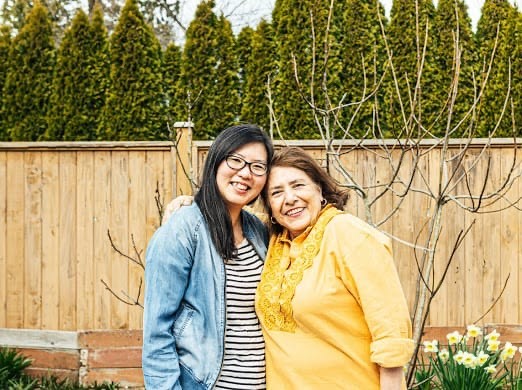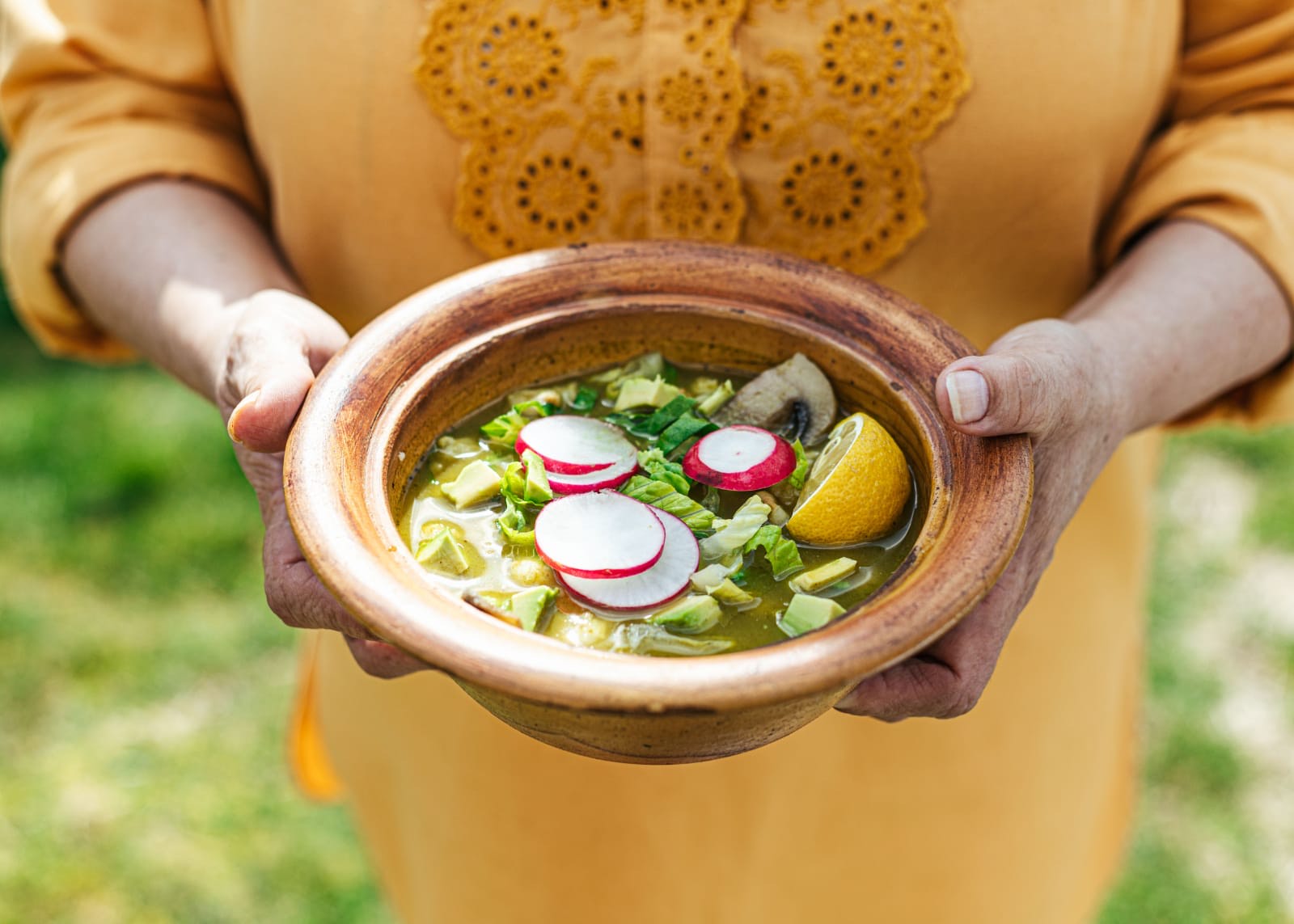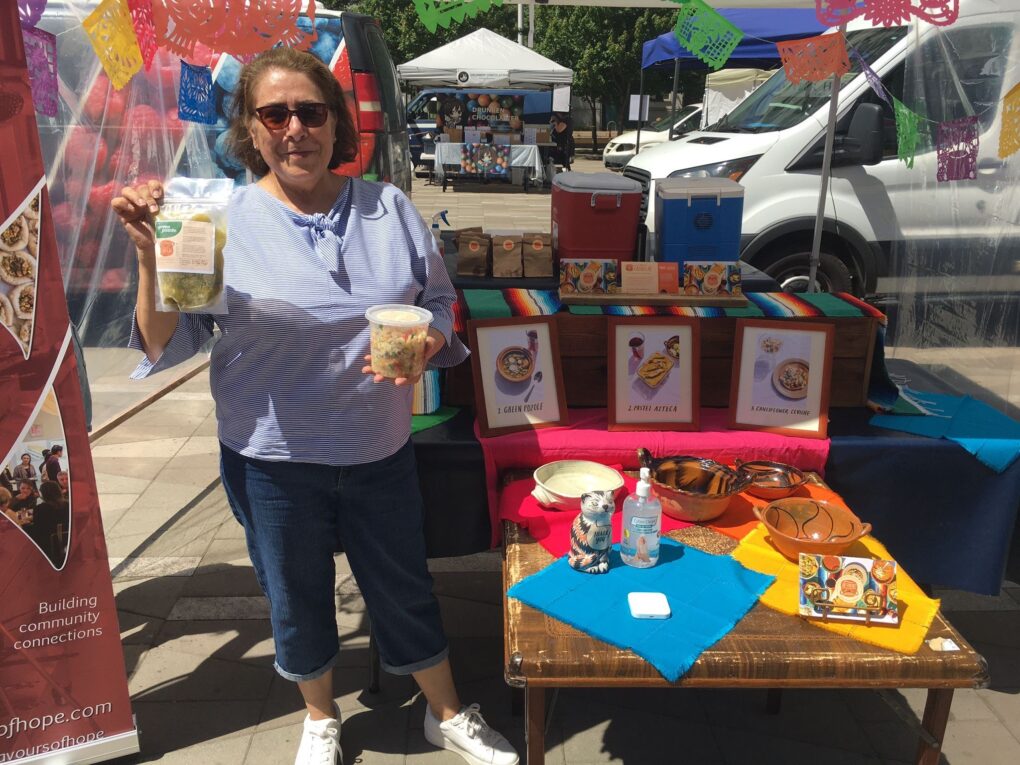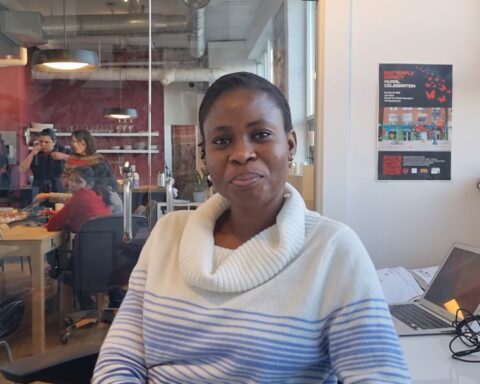Angeles Canedo never planned to come to Canada. A former English teacher, Canedo, together with her husband, an engineer, was the owner of a thriving construction company in Mexico. In 2016, as Canedo and her husband were starting to plan their retirement, violence related to the Cartels war touched them personally, and they were forced to flee with their three adult children. Canada would be the place they escaped to.

Today, Canedo is one of the first three alumni of Dream Cuisines, a nine-month immersive program which helps refugee women build a food business by providing access to educational workshops, mentorship, and practical supports, such as access to space in a commissary kitchen.
Dream Cuisines, which started in 2021 and is currently running its second cohort, is the most recent project for Flavours of Hope, a Vancouver-based non-profit social enterprise founded by Trixie Ling. An experienced settlement worker and passionate advocate for immigrant and refugee women, Ling wanted to empower refugee women by encouraging them to use their cooking skills to prepare their traditional foods and share them with their communities.
“My vision was to see newcomer women not just adapt, but really flourish in all senses: socially, economically, culturally, and to feel that place of belonging through cooking, storytelling, and entrepreneurship,” Ling says.
Originally from Taiwan, Ling moved with her parents to Singapore, the U.S., and then Canada when she was young. Her own lived experience as an immigrant, as well as seeing the hardships her parents went through as they settled in Canada, inspired her to create Flavours of Hope.
“A ghost here”
Canedo was deeply traumatized by the violence of the Mexican cartels when she arrived in Vancouver.
“I was 56 … and my first panicked thought was: How am I going to survive at this age? What can I do here?” said Canedo in an interview with NCM.
Her trauma compounded with the hardships all newcomer refugees face as they try to settle in Canada: language and employment barriers, a lack of community, and a sense of identity loss.
“When I first arrived, I used to say ‘I am a ghost here because I don’t know anybody, nobody knows me,” says Canedo. “Nobody pronounces my name because they don’t know that I am here.’ It was a terrible feeling.”
Fighting feelings of anger and injustice over what they had experienced, Canedo and her family got involved in their local church, which initially provided the newcomers support with food, clothes, and English lessons. As a gesture of thanks, Canedo and her husband offered to cook dinner at one of the weekly meetings. This act of gratitude would start a transformation in the former English teacher’s life.
Soon they were asked to cook again for the church’s dinner nights, where Canedo met Ling, a coordinator for the community dinners. Little did Ling and Canedo know that this first encounter would begin a collaboration that would be integral to the foundation of Flavours of Hope.
Empowerment through reciprocity
Initially, Ling hired Canedo on contract to do food demonstrations and cooking pop-ups. Later, as Flavours of Hope took shape, Canedo was involved as one of the first collaborators but also one of the first beneficiaries of the program. Seeing that the mother of three was struggling with her situation as a refugee, Ling asked Canedo to speak about her experience during the food demonstrations. Canedo says that work offered her a path to healing.
“People appreciated what I was offering them at the farmer markers, not just a meal, but a time to talk. I really loved it because people came up to me to talk about what they have seen in Mexico when they visited,” she says. “All of that has helped me to integrate here, and now I feel that I am no longer a stranger.”
For Ling, the idea of refugees giving back to the communities that welcomed them is central to the mission of Flavours of Hope.
“When you’re a newcomer, you get a lot of things, there’s a lot of receiving, but you also want to be able to give. The power you have when you are also in a position of giving and sharing, it’s very dignified,” she explains.
“Food has the power to give women a voice in sharing who they are, where they’re from, what they love to do, and for them to really show care and love and hospitality through feeding their friends, feeding their neighbors, and feeding their community.”
Angeles Canedo-Founder & Chef of “Mis Cazuelas,” talks about her vegan green pozole.
Removing barriers
Through Flavours of Hope, Ling also wanted to increase access to the food industry by providing immigrant and refugee women with tools to bring their traditional products to the mainstream.
For Ling, this also means supporting the women as they navigate the many steps required to launch a new business, such as completing multiple forms and applying for permits. By providing this support, she hopes to create more “equity in the system.”

Ultimately, the Dream Cuisines program seeks to create leaders in the participants’ own communities. “The three women who graduated during the first cohort are going to be mentors this year,” Ling said. “So, the cycle of giving continues.”
After completing the program, Canedo launched “Mis Cazuelas Mexican Food,” a company offering traditional Mexican dishes such as ceviche, flautas, and pozole. The word cazuela means “cooking pot”—usually an earthen pot — in Spanish. Her products can be found at Vancouver farmer markets throughout the year but also online through the “Mis Cazuelas” website.
The dishes Canedo offers through “Mis Cazuelas” are the product of a long process of research, kitchen tests, and trial and error. Her green pozole, a soup-based dish that is usually made with pork or chicken, has been transformed into a vegan version — something Canedo did to adapt the recipe to the tastes of many of her Canadian customers. Like Canedo, the dish is a testament to the transformational power of a model of integration that fosters refugees’ voices and their ability to give as well as to receive.
French Editor - Born in Venezuela, Andreina Romero is a freelance writer with New Canadian Media. Prior to writing for New Canadian Media, Andreina was a bilingual contributor at The Source Newspaper, also known in French as La Source, an intercultural newspaper in Vancouver. She is also the creator and host of the podcast Girls Talk About Music and Wigs and Candles which explore music and period films from a uniquely female and Latin American lens. In 2020, Romero also co-founded Identity Pages, a youth writing mentorship program.





